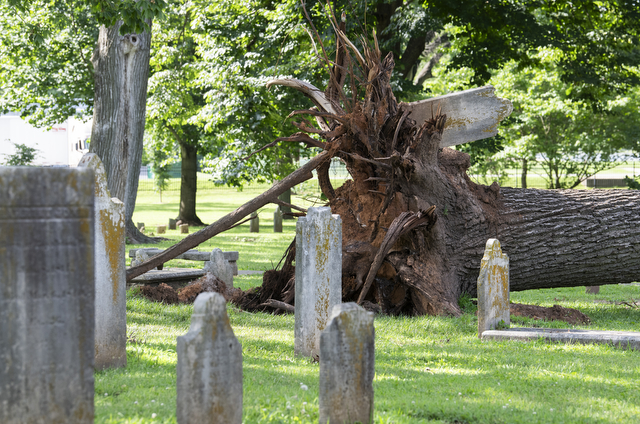Gun control, access could be issue for voters in presidential race
Published 3:30 pm Saturday, November 5, 2016
Through much of his second term, President Barack Obama’s executive orders and actions aimed at limiting access to firearms have sharply divided the American political world.
Since the shooting at Sandy Hook Elementary School in Connecticut in 2012, Obama has issued dozens of executive orders and executive actions that the National Rifle Association has decried.
Among them have been orders to require federal agencies to make relevant information on potentially dangerous people available to the National Instant Criminal Background Check System, and executive actions wherein Obama informally called for allowing law enforcement to perform a background check before returning a seized gun and for all firearm dealers to be required to have licenses and perform background checks regardless of how they sell their wares.
Locally, the extent to which legitimate gun-related businesses have been impacted has varied.
“Nothing he’s done has actually affected our business,” said Sherwood Davis, owner of Sherwood’s Guns in Bowling Green,
Davis said he has no issue with closing what’s known as the gun show loophole, where dealers who are not federally licensed can potentially sell their guns without performing background checks at gun shows.
As a federally licensed dealer, he always performs background checks, meaning his way of doing business has not changed, he said.
“It’s just a lot of smoke and mirrors,” he said, adding that the executive orders are charged with rhetoric but don’t truly have much of an impact.
For Jeremy Blanton, owner of Blanton’s Gunsmithing in Russellville, an executive order Obama issued in July will have a much more profound impact. The order reclassifies gunsmiths as manufacturers, which requires them to pay a $2,250 annual fee regardless of whether they produce any goods.
The order affects anyone with a business that modifies guns to the point where they no longer conform to their factory specifications, Blanton said.
Though he wouldn’t speculate as to what the intended rationale behind this order might be, he said it doesn’t do anything to keep firearms out of the hands of potentially dangerous people.
“It doesn’t have any effect on the purchase of firearms,” he said.
For now, Blanton has to put his gunsmithing business on hold because continuing it isn’t worth the annual fee he would have to pay, he said.
“I couldn’t afford it,” he said. “That’s more than I make in a year working on guns.”
A July article published by the Institute for Legislative Action, the NRA’s lobbying branch, said the NRA considers the goal of the order was to put local gunsmiths without the ability to pay the fee or navigate the U.S. State Department’s “confusing maze of bureaucracy” out of business.
No representative of the NRA or Friends of NRA answered requests for comment.
Joel Turner, assistant professor of political science at Western Kentucky University, said Obama has taken to executive orders and executive actions in his efforts to curb gun sales because he can’t get Congress to act on any sort of gun legislation.
“The Second Amendment lobby has sort of cornered the market on this issue because people are scared to go up against them,” he said.
Southern Democrats, tending to be more conservative than Democrats in other parts of the country, are often unwilling to publicly support Obama’s call for stronger control of gun sales for fear of it hurting their chances of re-election, Turner said.
“They don’t want to be caught dead approving of Obama’s gun control measures,” he said.
Executive actions and executive orders are not the same, according to uspolitics.com. Whereas executive orders carry the full force of law, executive actions are informal proposals a president makes. While most don’t have any “legal weight,” the ones that manage to change policy can be undone by congressional legislation or declared invalid by the courts.
The lifespan of Obama’s executive orders will likely depend on who the next president is, Turner said.
Typically a president will issue numerous executive orders shortly before leaving office, he said, which means more gun-related executive actions could be in store during Obama’s final days in office.
“That’s not at all unusual,” he said.
For an executive order to be overturned, the president who issued it, or that president’s successor, must kill it, Turner said.
In the event of a Republican Donald Trump presidency, the orders would likely be killed immediately, he said.
“If we had a President Trump, he could do away with all of that,” he said. “President Trump, his first step in office, would probably be to undo all of those.”
Democrat Hillary Clinton, on the other hand, would be more likely to keep Obama’s executive orders, Turner said. “My sense is she’d be less inclined unless she didn’t think his orders were working,” he said.
Turner doubts that any attempt to ban guns outright would ever happen because the right to own firearms is protected by the Second Amendment.
Because she’s made gun safety a large part of her political platform, Davis anticipates Clinton would go much further than Obama has with her efforts at implementing gun control.
“She’s talking about making the background checks more expansive,” he said. “I think anything she does will lead us down the path to confiscation,” he said.
Davis said he’s fully in support of Trump’s candidacy because he anticipates that Trump will not introduce any measures on gun control.
Andrew Patrick, a communications strategist with the Coalition to Stop Gun Violence, said Obama changed the gun control debate by rolling out the first of his gun-related executive orders in January 2013, roughly a month after the Sandy Hook shooting.
“This was him putting it front and center,” he said.
The Coalition approves of the measures Obama’s taken, especially his call for requiring all dealers to be licensed and perform background checks, which, as an executive order, has no legal power. What the group ultimately wants, universal background checks, is only achievable if Congress approves them, Patrick said.
“It’s not the ultimate solution because that would take congressional action,” he said of the current action.
While the gun show loophole is a popular buzzword in the media and for organizations fighting to stop the spread of gun violence, the larger threat is what Patrick called the internet loophole.
“Really, the internet loophole is the big one,” he said.
There are websites fully compliant with the law that don’t subject purchasers to background checks and even use this asset as a selling point, he said.
The internet loophole couldn’t be closed without congressional approval, Patrick said, adding that Congress’ inability to act on any kind of gun legislation forced the president’s hand.
“We’ve seen this president doing everything in his power take action here,” he said.
Under a Clinton White House, Patrick said he would expect presidential efforts to expand background checks to continue and possibly expand.
“She’s made this issue a pillar of her campaign more than any other candidate in recent history,” he said.
Meanwhile, with Trump in the Oval Office, Patrick said there would be “no telling” what would happen as far as guns are concerned, he said.
— Follow Daily News reporter Jackson French on Twitter @Jackson_French or visit bgdailynews.com.






